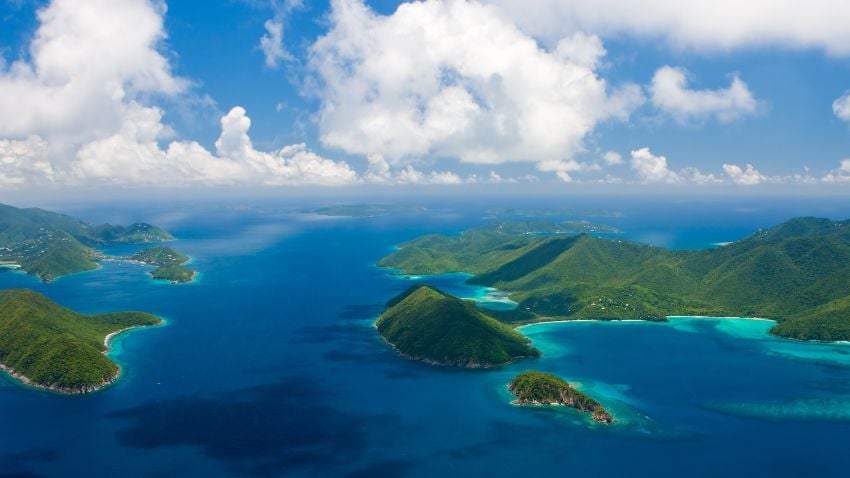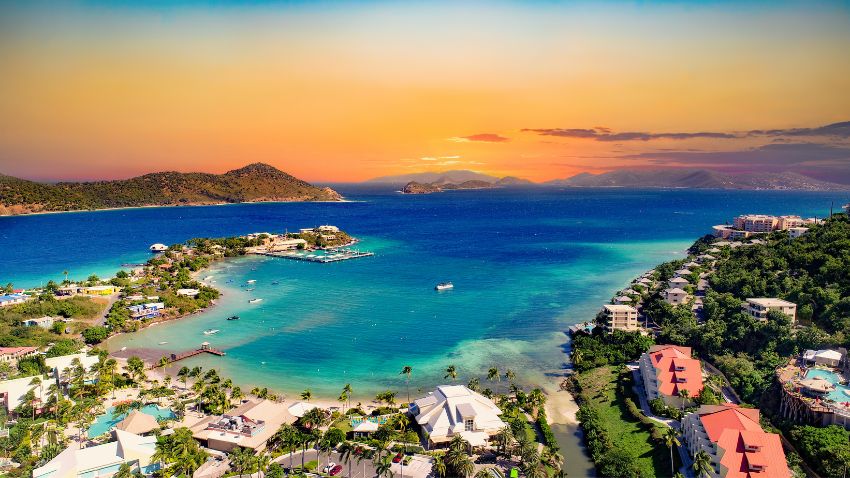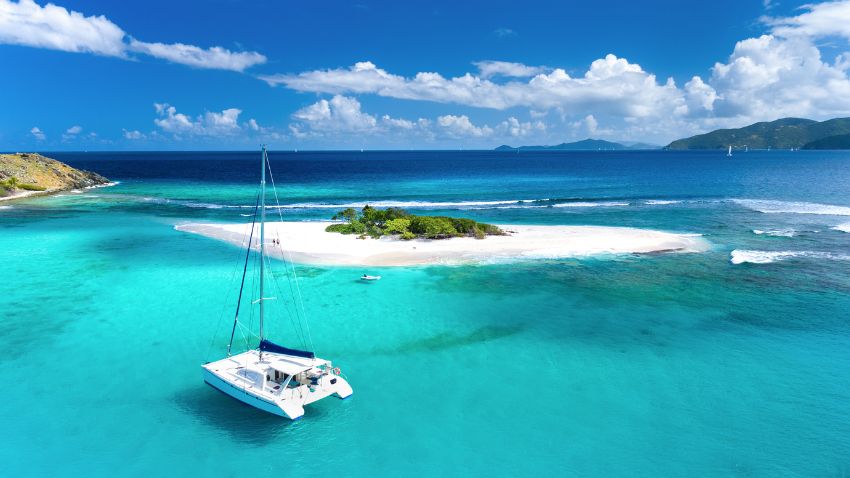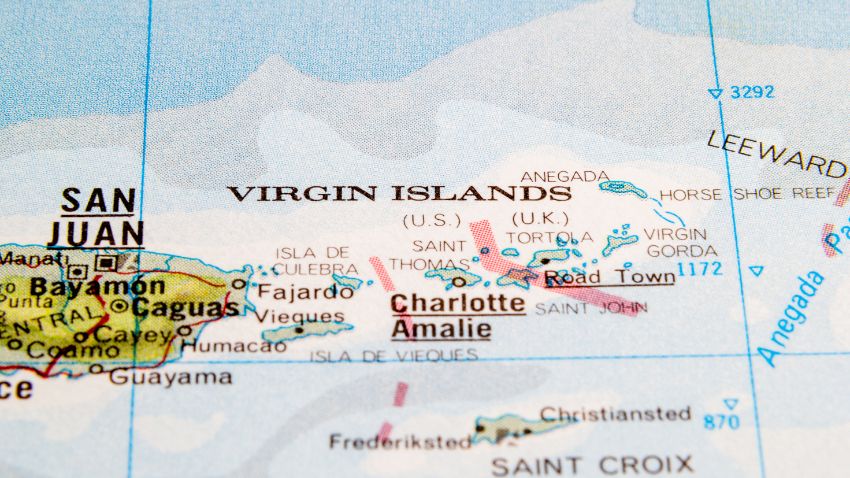Top Things To Do In Panama In 2026
Panama’s geographic size is modest, but its global relevance is not. The country connects two oceans and two continents, operates on a dollarized...

5 min read
The British Virgin Islands is a profoundly beautiful country. It truly is a tropical paradise, from the white sand beaches to the crystal clear waters and the hillsides lush with vegetation. You can explore historic shipwrecks or witness the majesty of the coral reef marine ecosystem for scuba diving enthusiasts. They also have idyllic sailing conditions year-round, making it a popular destination for seafarers.
If you are interested in a long-term stay in the British Virgin Islands, there are many temporary residency options you can pursue. Permanent residency is a lengthy process, but it is still possible to reside in the British Virgin Islands indefinitely on a temporary visa if you meet the proper qualifications.
Residency in the British Virgin Islands (BVI) presents an enticing option for those seeking a tax haven with a favorable jurisdiction for both individuals and entities. The BVI is renowned for its efficient tax policies, making it a preferred destination for individuals and businesses looking to minimize their tax obligations legally.
For entities, the BVI offers a scope of benefits that extend beyond its picturesque landscapes. The jurisdiction has tailored its legislation to attract offshore companies and structures, providing them with a favorable environment for their activities. These entities are often exempt from local income tax, making the BVI an attractive choice for international businesses.
One option for temporary residency is “permission to reside”, which is valid for one year and can be extended indefinitely. This is a popular choice for “snowbirds” or retirees that want to spend part of the year on a prolonged vacation there. In order to qualify for this option, you must convince the immigration officials that you will be living there on a temporary basis, that you will not be working, and that you have the means to support yourself and afford a return voyage at the end of your stay. One benefit to this status is that you can enter and exit the British Virgin Islands at will during the duration of your residence visa. The cost to apply for this program is negligible, but you must post sufficient funds with the Immigration Department to guarantee you can afford a return ticket.
Related Content: Residency In Bermuda: What's Available For You And Your Family

St Thomas US Virgin Islands aerial view
Another option for residency in the British Virgin Islands is to get a work permit. The British Virgin Islands has a thriving economy, with a GDP per capita of $49,357 USD as of 2020. Because of its developed economy, there are ample lucrative job opportunities if you can find an employer to sponsor you.
So long as your employment is in place, you can renew your work visa annually. There is no fixed number of times that you can apply to renew your work visa. However, as a temporary resident, you do not have a right to reside in the British Virgin Islands, so it is up to the discretion of the immigration officer. In addition to finding employment, you can also qualify for a work permit by starting a business.

Aerial view of Catamaran at Sandy Spit, British Virgin Islands
Belonger status is reserved for people with specific ties to the British Virgin Islands. For example, one way to qualify as a belonger is by having ancestry. Another way to become a belonger is by marriage to another belonger. A non-belonger is someone who does not have these special familial ties.
To purchase property as a non-belonger, you must first apply for the land holding license and submit all required documents, including copies of the newspaper or online classified advertisements pertaining to the land sale and a notarized letter of intent from the land owner. Once you acquire this license, you may then obtain an I.D. card which will allow you to stay in the British Virgin Islands for up to six months during any twelve-month period. Note that typically individuals entering on a tourist visa or as visa-exempt individuals only receive permission for a one-month stay, which can be extended.
Qualifying for permanent residency in the British Virgin Islands requires that you live there for twenty years. During those 20 years, your longest absence from the islands must have been for less than 90 days, except if the reason for your trip was medical treatment or education. Applications are processed within two to three business days.

Map of British Virgin Islands
The British Virgin Islands are an archipelago located in the Caribbean just off the east coast of Puerto Rico. It has a modest population of only 30,000 and is one of several overseas territories belonging to the United Kingdom. There are sixty islands in total, but only sixteen are populated, with the vast majority living on Tortola, the largest of the islands. Despite being ruled by the Queen, the currency in the islands is the U.S. Dollar. Their economy is quite strong, albeit not very diversified, as the financial services and tourism sectors comprise most of the economic activity.
More than 600,000 companies are registered in the British Virgin Islands, attracted by extremely low taxes and strong financial confidentiality laws. In the 2022 budget, nearly half of government revenue came from business registrations. The next most significant source of revenue was a payroll tax. But they have no income, sales, inheritance, wealth, capital gains taxes, and property taxes, while extant taxes are negligible. The payroll tax is 10% for small businesses and 14% for larger companies, with the burden split between the employee and the employer. Import duties make up the third largest revenue stream for the government of the British Virgin Islands, comprising a little more than 10% of all revenue.
The cost of living is reasonably high, comparable to living in a relatively expensive Western city, as many goods need to be imported. Groceries, in particular, are costly.
Crime is quite low in the British Virgin Islands, and it is a safe place to live. As a British overseas territory, there is a strong tradition of English common law and a functional legal system to ensure your right are protected.

United States Dollar, British Virgin Islands Currency
Establishing tax residency in the British Virgin Islands is very advantageous from a tax perspective because they do not have so many of the traditional taxes governments like to impose. In addition, the Islands’ traditions of bank secrecy make it a good place for individuals who value financial confidentiality.
Related content: Residency In Bermuda: What's Available For You And Your Family
One of the primary advantages of the BVI as a tax haven is its economic substance legislation. This legislation requires certain entities to have a physical presence, employees, and management within the BVI to ensure compliance with international tax standards. By adhering to these requirements, businesses can maintain their tax advantages while upholding their compliance obligations.
The BVI also allows for the creation of various entity structures, including partnerships and offshore companies. These structures provide flexibility and tax benefits, further enhancing the appeal of the BVI as a tax haven.
Individuals looking to establish residency in the BVI can explore different options. While the BVI does not offer British citizenship directly, obtaining a British passport can be facilitated through various routes, including residency in the BVI. This residency can be obtained through a residence permit, provided individuals meet the residency requirements, which can vary depending on the specific circumstances.
The BVI offers an array of advantages for those considering residency, including access to its efficient tax structures, beautiful surroundings, and a favorable legal framework for both individuals and businesses. It remains a popular choice among those seeking a tax haven option that aligns with their financial and lifestyle goals.
The British Virgin Islands has it all. From amazing landscapes to shipwrecks and great weather to calm waters for sailing, as a bonus, it is a tax haven with a strong bank secrecy tradition, a true paradise. They no longer have a permanent residency by investment program. However, they have many other options that allow you to live and establish a company or other investments with an “indefinite” temporary resident visa.
If you want the best intel from the expat world, including profitable offshore opportunities, little-known tax-saving strategies, and hard-won insights on immigration, passports, and Plan-B residencies, all delivered to your inbox every single week, then join our daily correspondence, EMS Pulse®. Currently enjoyed by over 84,000 expats and expat-hopefuls worldwide. Fill in the form below to join our newsletter free:

Written by Mikkel Thorup
Mikkel Thorup is the world’s most sought-after expat consultant. He focuses on helping high-net-worth private clients to legally mitigate tax liabilities, obtain a second residency and citizenship, and assemble a portfolio of foreign investments including international real estate, timber plantations, agricultural land and other hard-money tangible assets. Mikkel is the Founder and CEO at Expat Money®, a private consulting firm started in 2017. He hosts the popular weekly podcast, the Expat Money Show, and wrote the definitive #1-Best Selling book Expat Secrets - How To Pay Zero Taxes, Live Overseas And Make Giant Piles Of Money, and his second book: Expats Guide On Moving To Mexico.

Panama’s geographic size is modest, but its global relevance is not. The country connects two oceans and two continents, operates on a dollarized...

Honduras’ newly elected president, Nasry Asfura of the conservative National Party, was sworn in on January 27, 2026. The election, held on November...

For a growing number of Americans, cost-of-living math no longer works. Housing feels harder to reach, everyday costs keep climbing, and long-term...